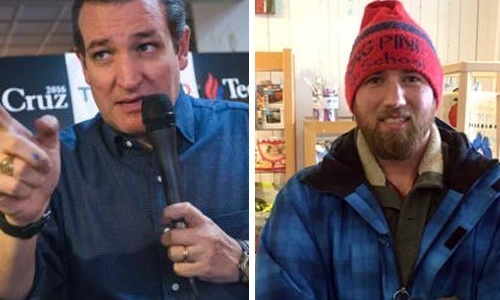MOST RECENT
POPULAR

The best of EcoWatch, right in your inbox. Sign up for our email newsletter!
Snow-Deprived Ski Industry Wants to Know What Ted Cruz Plans to Do About Climate Change

While Ted Cruz was campaigning in New Hampshire on Tuesday, he was approached by multiple residents who are concerned about how he will respond to climate change if elected.
https://twitter.com/thinkprogress/status/689950552478785536 than the average kindergartner,” one of the scientists, Penn State University professor Michael Mann, wrote of Cruz. “That sort of ignorance would be dangerous in a doorman, let alone a president.”
YOU MIGHT ALSO LIKE
NASA Scientist Dying of Cancer Attacked by Climate Deniers
California to Investigate Exxon on Climate Cover-Up
300 Sea Turtles Found Dead on Indian Beach
Monsanto’s Genetically Engineered Roundup Ready Alfalfa Has Gone Wild
EcoWatch Daily Newsletter
Related Articles from EcoWatch
Recent Stories from EcoWatch

 233k
233k  41k
41k  Subscribe
Subscribe 